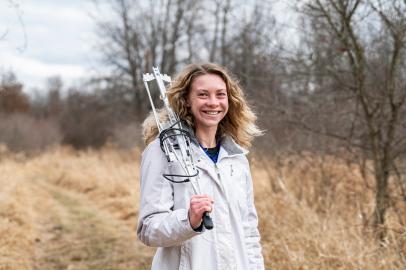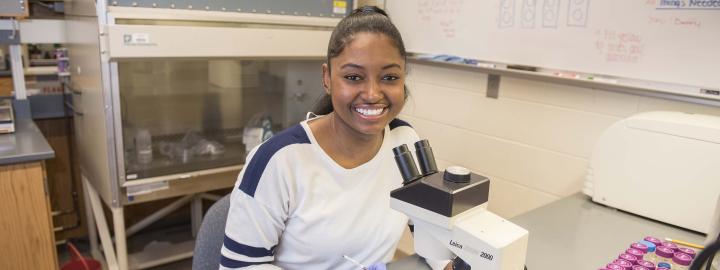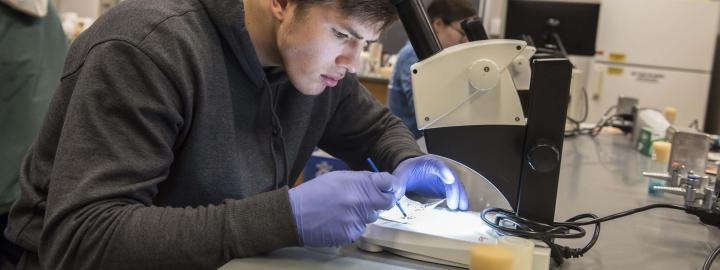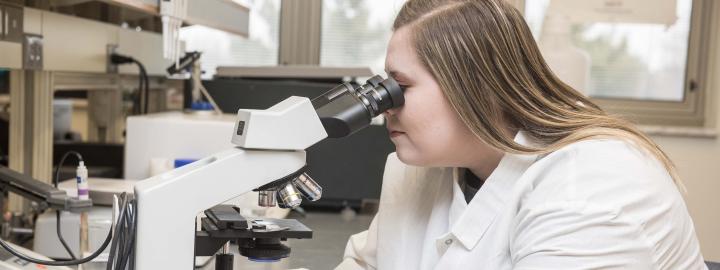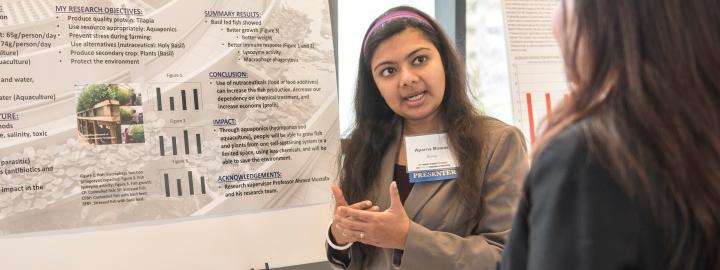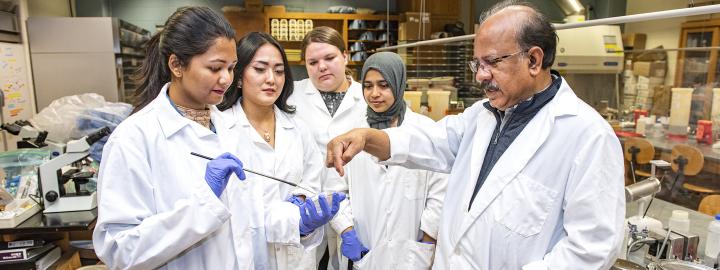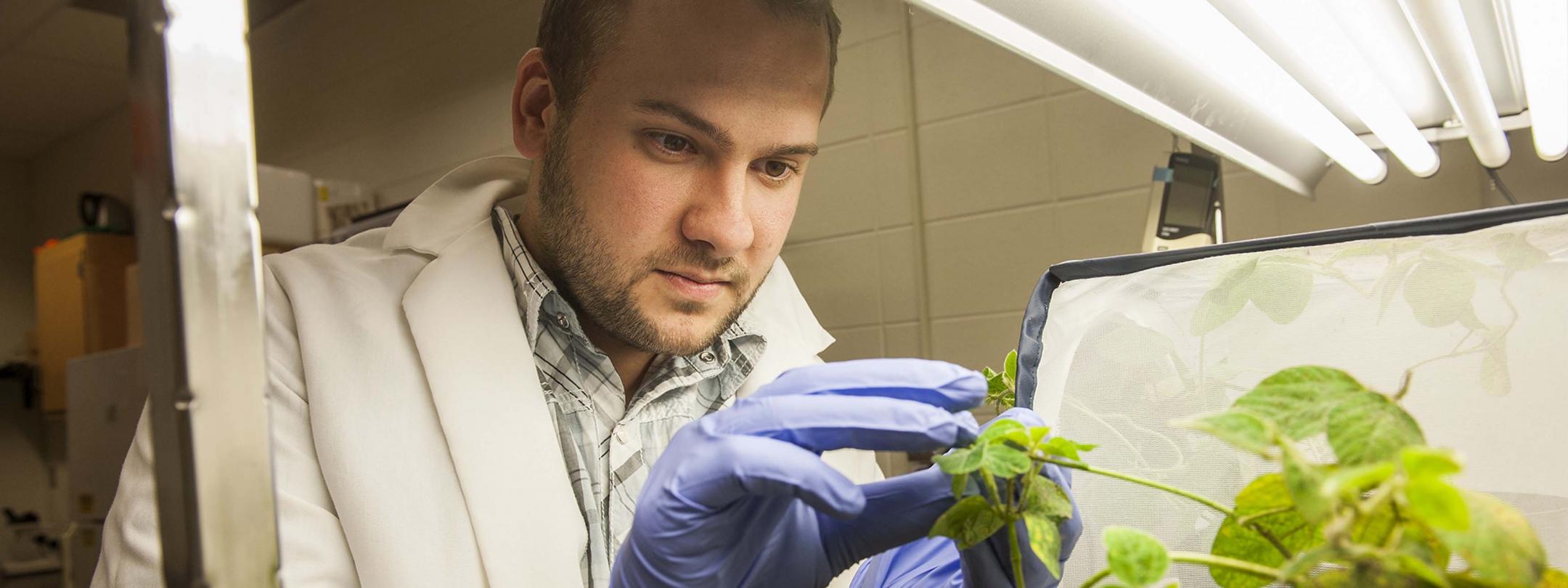
Biological Sciences Programs
It takes persistence to make differences that matter.
Whether you’re looking for a degree, minor, or certificate, the Department of Biological Sciences has the program you need to meet your goals.
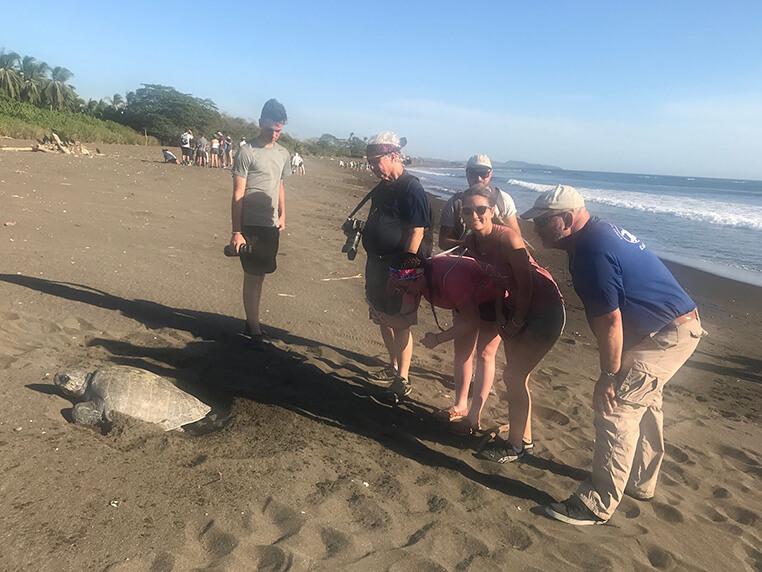
Biology (B.S.) with Concentration in Marine Biology
If you’re hoping to solidify your future as a marine biologist or an oceanographer, this is the concentration for you. You’ll gain the field and wet lab experiences and knowledge that are crucial to many jobs in the fields of marine biology and oceanography, as well as climatology, environmental science, and conservation. This program is also tailored to prepare you for success in graduate school.

Program
Highlights
Program Highlights
- Top-notch research and problem-solving skills
- Experience with quantitative analysis
- Support from the Mastodon community
- A prestigious Purdue degree
career and salary data
How far will you go?
General labor market and salary data are provided by Lightcast via O*NET and may not represent the outcomes experienced by Purdue Fort Wayne graduates in these programs. Purdue Fort Wayne graduates in these programs may earn salaries substantially different or less than the amounts listed. Salary and employment outcomes vary by geographic area, previous work experience, education, and opportunities for employment that are outside Purdue Fort Wayne’s control. Purdue Fort Wayne does not guarantee employment placement, salary level, or career advancement.
Student Learning Outcomes
Upon completion of this degree, students will demonstrate the following learning outcomes:
- A level of competency for understanding core principles of evolution, organismal diversity, ecology, biological structure, biological function, molecular biology, and genetics
- A particular knowledge of the marine environment, marine life and ecology, and the conservation of marine life
- The ability to locate and critically evaluate scientific information to help develop relevant questions and hypotheses, interpret the results of investigation, and synthesize and apply new and existing knowledge
- The ability to design studies to test biological hypotheses using laboratory, field, or computational methods that meet professional ethical standards
- The ability to effectively communicate the results of scientific research verbally and in writing
- The ability to learn independently, analyze data, interpret results, synthesize information, and critically evaluate the significance of research results and new knowledge
- An awareness of the relevance of biological knowledge to human health and welfare in local, national, and international communities
- Climatologist
- Conservationist
- Environmental Scientist or Specialist
- Lab Manager
- Marine Biologist
- Microbiologist
- Oceanographer
- Wildlife Biologist

